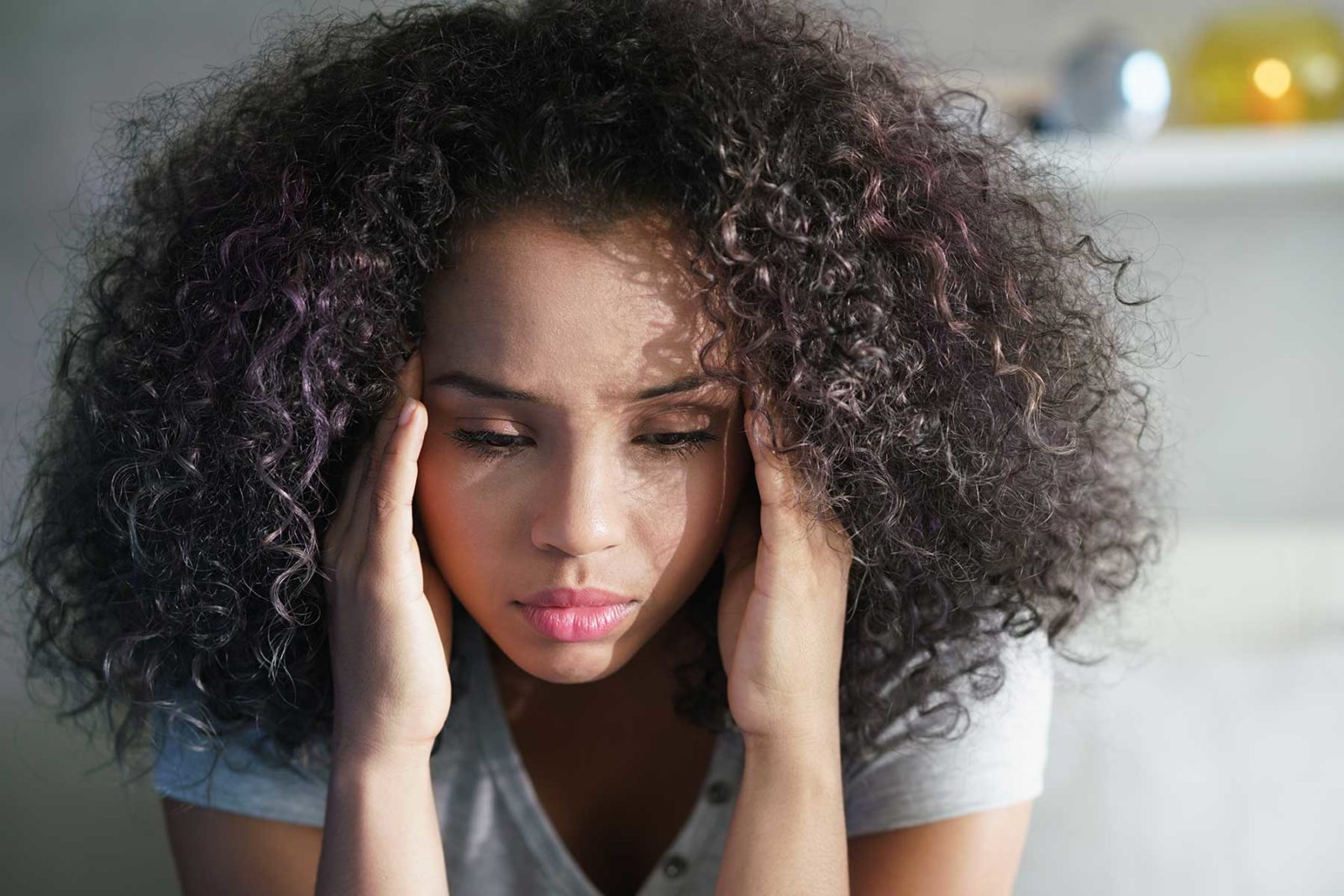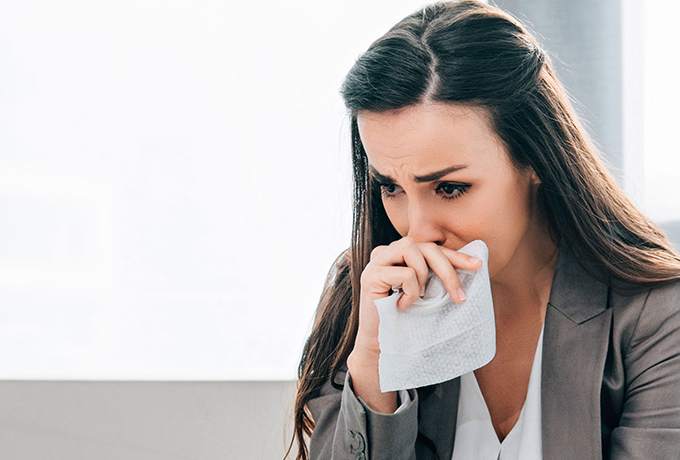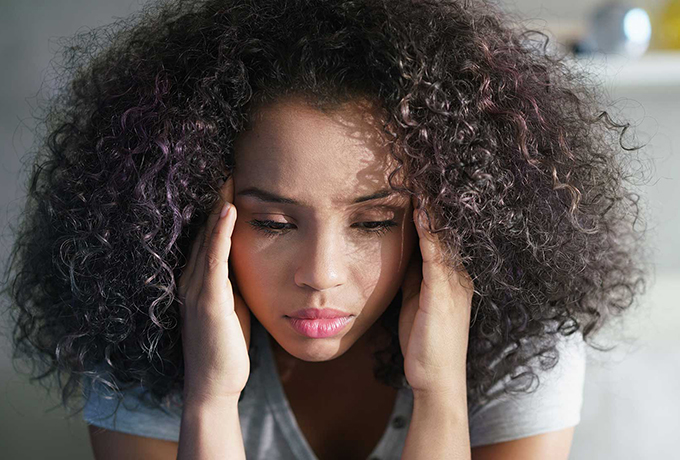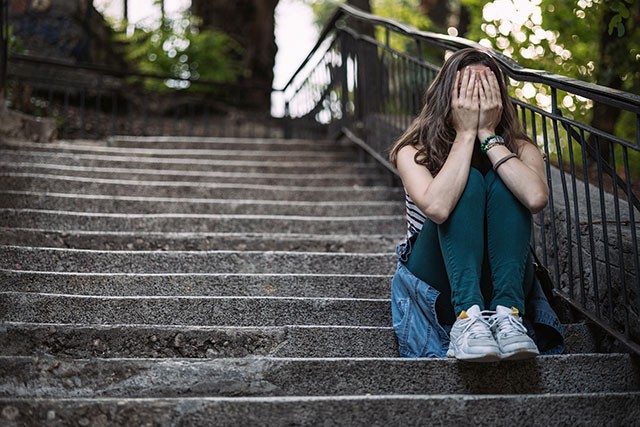Understanding depression
Depression is more than just feeling sad or blue from time to time. Depression is an intense feeling of sadness or low mood that lasts for a long time, sometimes weeks, months, or years. If you are depressed, it can start to interfere with the daily activities in your life. Depression can impact how you think, feel, and behave.
In addition to persistent feelings of sadness, if you are depressed, you may also feel hopelessness and lose interest in activities you once enjoyed. When you feel depressed, you can also have physical symptoms such as tiredness, changes in appetite and sleep patterns, and difficulty concentrating. Around one in seven Australians will experience depression in their lifetime. [1]
“You can get help for depression.”
If your mood has been low and those feelings are not going away, help is available. Speak with a SuicideLine Victoria counsellor for free by calling 1300 651 251. You do not need a referral.
Do I have depression? Common depression symptoms
Everyone is different, but there are some common signs and symptoms of depression that you may be experiencing:
Mood
- Feeling sad
- Feeling numb
- Feeling hopeless
- Feeling empty
- Feeling frustrated
- Getting irritable easily
- Feeling guilty
- Feeling down
- Feeling miserable.
Thinking
- Being very self-critical (e.g. “I feel worthless”, “I am a failure”)
- Thinking you cannot cope
- Difficulty making decisions
- Unable to concentrate
- Thoughts of suicide or self-harm
- Thinking that nothing good ever happens to me.
Please remember that these thoughts are not necessarily true and that support is available. Call SuicideLine Victoria on 1300 651 251. In an emergency, call 000.
Behaviour
- Losing interest in things and activities you used to enjoy
- Lacking confidence
- Crying regularly
- Losing your temper more than usual
- Avoiding friends and family.
Physical changes
- Change in appetite
- Change in weight
- Sleep problems
- Headaches
- Stomach aches
- Feeling tired
- Having low energy
- Feeling run down.
Causes of depression
While the exact cause of depression is not fully understood, research has identified several contributing factors that may increase a person’s risk of developing depression. Similar to the symptoms of depression, the causes of depression can be different for everyone.
Life events and current circumstances
Many life situations can trigger or worsen feelings of depression. These may include:
- Losing a job or job insecurity
- Relationship problems or breakdowns
- Grief after losing someone close to you
- Major life transitions (moving, finishing school, retirement)
- Ongoing stress at home, work, or school
It is normal to feel sad or down after difficult life events. However, if these feelings persist for a long time or significantly impact your daily routine, it could indicate depression.
Disconnection and isolation
Feeling disconnected from others or experiencing loneliness can contribute to depression. This might include:
- Social isolation from friends and family.
- Feeling misunderstood or undervalued by those around you.
- Lacking a sense of purpose or meaning in life.
- Disconnection between your values and how you are living.
Family history
One of the factors that can increase the risk is a family history of depression. Noting that having a family history of depression does not automatically mean you will have the same experience.
Past experiences
Some experiences from your past, including during childhood, can make you more vulnerable to depression. These might include:
- Experiencing abuse or neglect
- Witnessing or experiencing violence
- Traumatic events or accidents
- Loss of a parent or caregiver
- Family instability or conflict.
These experiences can have lasting effects and contribute to depression, even if they happened long ago.
Health factors
Physical health can also play a role. People who have a serious, chronic or long-term illness and are struggling to cope may be more likely to develop depression.
Depression and anxiety
Depression and anxiety are common mental health conditions. Depression is characterised by intense and persistent feelings of sadness and low mood. Anxiety is a feeling of worry, fear or unease that is long-lasting and starts to interfere with daily life and activities. It is possible to have both, and they can be treated at the same time.
Depression treatment
Health professionals who can help with depression treatment
Treatment for depression is very common, and there are health professionals who can help you:
- GPs – your first step may be to make an appointment with your doctor. Your GP can undertake an assessment, check for any physical health issues, develop a mental health treatment plan, and give you a referral to speak to a psychologist or a psychiatrist if needed.
- Psychologists – a psychologist can diagnose and provide therapy to help with depression. A psychologist might use different psychological treatments, including cognitive behaviour therapy, problem-solving therapy, behavioural activation, interpersonal psychotherapy, and mindfulness-based cognitive therapy.
- Psychiatrists – a psychiatrist is a medical doctor who specialises in diagnosing and treating mental health conditions and may use a combination of psychological treatment and medication.
- Mental Health Nurses – a mental health nurse specialises in mental health conditions and usually works with a team of other health professionals in a community setting, clinic, or hospital. They can help with depression treatment and facilitate links to other services.
- Counsellors – you can find counsellors in community health centres, schools, universities, private practice, and on some helplines. Our SuicideLine Victoria counsellors are trained in mental health issues, including depression. If you need help, call us any time of the day – our service is free. Call 1300 651 251.
Tips to improve your mood when you feel depressed
In addition to reaching out to a health professional, the Australian Psychological Society suggests the following tips to help improve your mood if you are feeling depressed: [2]
- Check your self-talk – Negative self-talk can worsen our mood, whereas positive self-talk can help us cope with life’s difficulties. Notice what you say to yourself and work on more helpful, kinder and calming self-talk. And remember that it is okay to take on less if you are not feeling great.
- Keep things in perspective – When we are upset, it is easy to see things as worse than they really are. Take a step back and ask if you’re getting ahead of yourself by assuming something terrible will happen. Is the outcome certain to happen, possible or quite unlikely? If the worst were to happen, what could you do about it? You can also think about how you would cope, as this can help to put things into perspective.
- Take action – Make a list of things you enjoy doing (e.g. listening to music, meeting a friend, reading) and a list of things that give you a sense of achievement (e.g. household chores, errands, work or school tasks). Next, look at your weekly schedule and try to set time aside each day to do at least one thing from each list. Make sure to set small and realistic goals.
- Practise meditation, relaxation or mindfulness – Regularly practising meditation, relaxation techniques, or mindfulness can allow your body to settle and readjust to a calm state.
- Look after your health – Eating well, regular exercise, spending time outdoors, and other healthy behaviours can support your recovery from depression.
Services and support
Here are some services and support you can reach out to:
24/7 Helplines
- 13YARN 13 92 76 – a free 24/7 Aboriginal & Torres Strait Islander crisis support line.
Directories
Online programs and apps
- MindSpot – a free, digital mental health clinic that provides psychological assessments, teletherapy, and online treatment courses.
- Black Dog Institute myCompass – a free online tool that can help you identify unhelpful thoughts, feelings, and behaviours, and learn strategies to deal with them.
- Smiling Mind – an app that has self-guided mindfulness and meditation sessions.
If you or someone you know is experiencing symptoms of depression, please seek support. Depression is treatable, and you don’t have to go it alone.
SuicideLine Victoria provides free immediate support for anyone feeling depressed. Call us on 1300 651 251 or you can click on the floating chat button on the right to start a web chat.
If it is an emergency, please call 000.
References
[1] ABS (2022) National Study of Mental Health and Wellbeing, 2020-21.
[2] Australian Psychological Society https://psychology.org.au/for-the-public/psychology-topics/depression/tips-to-improve-your-mood









